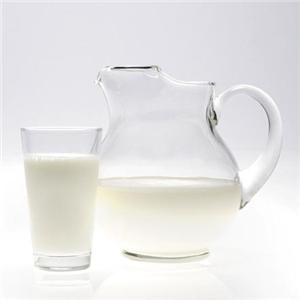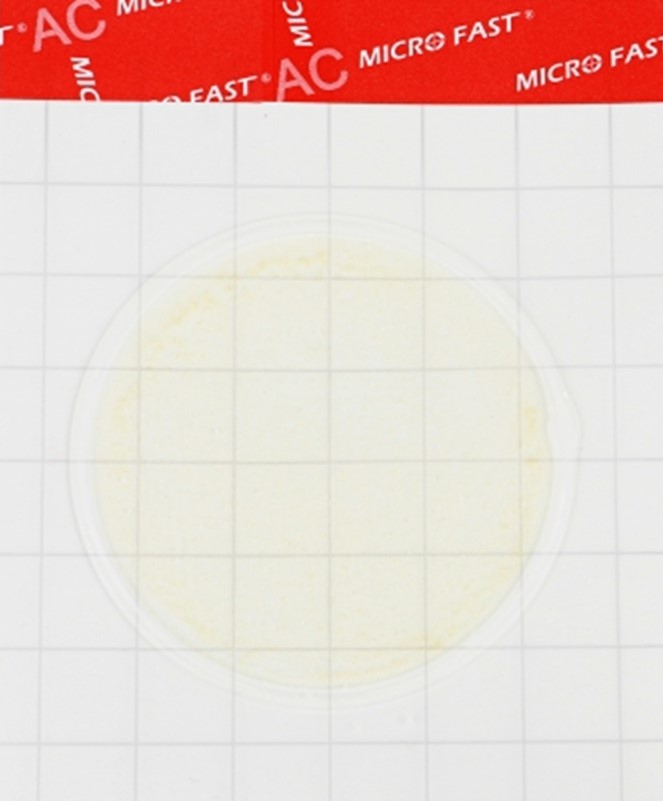Future Technologies in the Agro-Industrial Complex. Why Mazolovogaz Sells Only Extra Grade Milk

Photo is illustrative in nature. From open sources.
Photo by UP "Vitebskoblgaz" Topic news Every farmer knows that milk is not only a healthy product, but also a profitable one. And if you approach its production correctly, you can significantly boost the economy of the enterprise. In the branch of the agricultural enterprise "Mazolovogaz" of UP "Vitebskoblgaz" after the reconstruction of the dairy complex in 2021 in the village of Kalinovo, a training and practical center for milk production was put into operation. It is a robotic complex, where a sanatorium has actually been created for cows. Here, each animal is cared for as if it were the winner of the competition for the best cow of the year. Feeding, cleaning, milking - everything is done according to technology. That is why they see a decent increase in milk production here. Branch Director Sergei Roslevich told a BELTA correspondent how this advanced enterprise was created and how students of the Vitebsk State Academy of Veterinary Medicine (VSAVM) are trained on the basis of the agro-complex of the future. After reconstruction, a cowshed for 200 heads was put into operation in Kalinovo. "This dairy complex is designed for year-round uniform production of milk by industrial means. The main product is natural milk, and the accompanying product is live meat from culled cows. The complex is represented by three rooms: two contain the dairy herd, and one room is allocated for young animals," Sergei Roslevich noted. In addition to the cowshed, the training and practical center has covered walking areas, a site for quarantining litter manure, a sanitary checkpoint, an entry disinfection barrier, auxiliary premises for installing a robotic milking system (UDR), a sanitary section, a dairy, its own mini-boiler room, and transport infrastructure facilities.
"For technical and economic reasons, this complex uses a walking, non-pasture technology for keeping cattle . The animals receive all the vitamins and microelements in a complete feed mixture. The cows get the necessary exercise by freely moving inside the sections and on the walking areas," explained the head of the branch. The
cattle keeping hall is divided into sections, where the bedding is changed at regular intervals. These sections are divided into a rest area with straw bedding and a forage and manure passage area without bedding. The sections for dairy cows also have automatic brushes and combs - even such pleasant little things for the cows were provided in advance.
"Cows are milked automatically. There are four robotic milking modules in the complex - 50 cows per module. The milking robot attracts the cow with concentrated feed. The UDR automatically, without manual labor, identifies the cow, gives out feed, cleans the teats, attaches the milking cups, monitors the milking process, removes the milking cups, sanitizes the udder, and pumps milk into a container for cooling and storage," emphasized Sergey Roslevich.
By the way, the cows quickly got used to this milking system and now line up one after another in a disciplined manner to the robotic module. The sight is unforgettable for those who see it for the first time.
The director of the branch said that the UDR is equipped with a multi-parameter milk quality control system. "The unit determines the color, specific electrical conductivity of milk and temperature separately for each share of the cow's udder. The quality control system determines the quantity and quality of milk , the level of proteins and fats and automatically directs deviating milk to separate containers. The milked milk is analyzed by a robot, and if the quality meets the standards, it goes to a vertical 7,000-liter cooling tank, and the cow returns to the herd," explained Sergey Roslevich.
This is not the end of the concerns about the comfort of animals at the complex. In the cold season, infrared heaters are used to maintain a temperature of at least 5 degrees Celsius in the milking module area. In the summer heat, a cooling dispersion shower is arranged for the animals. This reduces heat stress and has a beneficial effect on the cows' appetite. By the way, the cows receive three meals a day using mobile mixer-feeders. The diet includes feed mixtures, the composition and quantity of which strictly correspond to the physiological state of the animals. And even the water for the cows comes in individual cup drinkers. What a sanatorium! All that's left is to turn on Mozart to keep the wet nurses from getting bored.
Animals at the complex are also strictly protected from the introduction and spread of infectious and invasive diseases. All transport must pass through a disinfection barrier, and MTC workers must pass through a sanitary checkpoint, where they can change into special clothing, and after their shift, wash and dry it right there in washing machines and dryers. And the employees themselves can take a shower before returning home.
"The reconstruction of the dairy complex and the creation of a training and practical center made it possible to increase the number of cows by 200 heads, the volume of annual milk production by almost 2.2 thousand tons, and revenue from product sales by Br2.5 million per year. The number of cattle at the complex as of January 1 was 849 heads, of which 448 are dairy herds. In 2024 , the grossMilk production here amounted to over 4.7 thousand tons, which is 264 tons more than in 2023. We get about 10.8 tons of milk per cow, milk yield increased by 556 kg last year compared to 2023. All milk is sold only as "extra" grade, - said the head of the branch.
Sergei Roslevich noted that an agreement on joint cooperation and scientific support was signed between Mazolovogaz Agricultural Enterprise and VGAVM. "Employees of six departments of the university work at the livestock complexes of our enterprise in scientific and practical centers (and there are only three of them). Both theoretical and practical classes are held at the complex for students of zoological and veterinary specialties," he noted.
In addition, specialists from agricultural enterprises of the Vitebsk region also undergo advanced training at the educational and practical center. Young specialists from the northern region's agricultural enterprises are also brought here so that graduates of agricultural universities and colleges can learn about the advanced experience of the high-tech dairy complex.
Alesya PUSHNYAKOVA,
photo by UP Vitebskoblgaz,
BELTA.
"For technical and economic reasons, this complex uses a walking, non-pasture technology for keeping cattle . The animals receive all the vitamins and microelements in a complete feed mixture. The cows get the necessary exercise by freely moving inside the sections and on the walking areas," explained the head of the branch. The
cattle keeping hall is divided into sections, where the bedding is changed at regular intervals. These sections are divided into a rest area with straw bedding and a forage and manure passage area without bedding. The sections for dairy cows also have automatic brushes and combs - even such pleasant little things for the cows were provided in advance.
"Cows are milked automatically. There are four robotic milking modules in the complex - 50 cows per module. The milking robot attracts the cow with concentrated feed. The UDR automatically, without manual labor, identifies the cow, gives out feed, cleans the teats, attaches the milking cups, monitors the milking process, removes the milking cups, sanitizes the udder, and pumps milk into a container for cooling and storage," emphasized Sergey Roslevich.
By the way, the cows quickly got used to this milking system and now line up one after another in a disciplined manner to the robotic module. The sight is unforgettable for those who see it for the first time.
The director of the branch said that the UDR is equipped with a multi-parameter milk quality control system. "The unit determines the color, specific electrical conductivity of milk and temperature separately for each share of the cow's udder. The quality control system determines the quantity and quality of milk , the level of proteins and fats and automatically directs deviating milk to separate containers. The milked milk is analyzed by a robot, and if the quality meets the standards, it goes to a vertical 7,000-liter cooling tank, and the cow returns to the herd," explained Sergey Roslevich.
This is not the end of the concerns about the comfort of animals at the complex. In the cold season, infrared heaters are used to maintain a temperature of at least 5 degrees Celsius in the milking module area. In the summer heat, a cooling dispersion shower is arranged for the animals. This reduces heat stress and has a beneficial effect on the cows' appetite. By the way, the cows receive three meals a day using mobile mixer-feeders. The diet includes feed mixtures, the composition and quantity of which strictly correspond to the physiological state of the animals. And even the water for the cows comes in individual cup drinkers. What a sanatorium! All that's left is to turn on Mozart to keep the wet nurses from getting bored.
Animals at the complex are also strictly protected from the introduction and spread of infectious and invasive diseases. All transport must pass through a disinfection barrier, and MTC workers must pass through a sanitary checkpoint, where they can change into special clothing, and after their shift, wash and dry it right there in washing machines and dryers. And the employees themselves can take a shower before returning home.
"The reconstruction of the dairy complex and the creation of a training and practical center made it possible to increase the number of cows by 200 heads, the volume of annual milk production by almost 2.2 thousand tons, and revenue from product sales by Br2.5 million per year. The number of cattle at the complex as of January 1 was 849 heads, of which 448 are dairy herds. In 2024 , the grossMilk production here amounted to over 4.7 thousand tons, which is 264 tons more than in 2023. We get about 10.8 tons of milk per cow, milk yield increased by 556 kg last year compared to 2023. All milk is sold only as "extra" grade, - said the head of the branch.
Sergei Roslevich noted that an agreement on joint cooperation and scientific support was signed between Mazolovogaz Agricultural Enterprise and VGAVM. "Employees of six departments of the university work at the livestock complexes of our enterprise in scientific and practical centers (and there are only three of them). Both theoretical and practical classes are held at the complex for students of zoological and veterinary specialties," he noted.
In addition, specialists from agricultural enterprises of the Vitebsk region also undergo advanced training at the educational and practical center. Young specialists from the northern region's agricultural enterprises are also brought here so that graduates of agricultural universities and colleges can learn about the advanced experience of the high-tech dairy complex.
Alesya PUSHNYAKOVA,
photo by UP Vitebskoblgaz,
BELTA.




























































